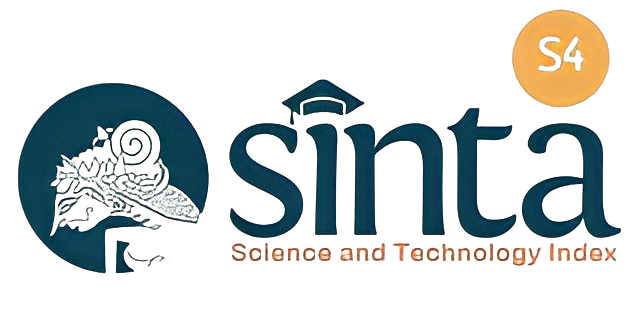Integrasi Teori Sosiologi dalam Analisis Studi Islam: Sebuah Pendekatan Interdisipliner
DOI:
https://doi.org/10.14421/jkii.v9i2.1388Keywords:
Agama, Masyarakat , Teori SosiologiAbstract
Penelitian ini mengkaji penggunaan teori sosiologi dalam penelitian studi Islam, dengan latar belakang pentingnya pemahaman mendalam terhadap dinamika sosial dan keagamaan dalam masyarakat.Penelitian ini bertujuan untuk mengeksplorasi relevansi dan kontribusi teori sosiologi dalam penelitian keagamaan.Metode yang digunakan dalam penelitian ini adalah metode kualitatif dengan pendekatan kepustakaan. Data dikumpulkan melalui berbagai sumber literatur, seperti buku, jurnal ilmiah, dan dokumen, yang dianalisis secara induktif. Hasil penelitian menunjukkan bahwa teori-teori sosiologi memberikan berbagai perspektif dalam memahami agama dan masyarakat. Émile Durkheim melihat agama sebagai faktor penting dalam menjaga kohesi sosial melalui fungsionalisme, sementara Karl Marx menilai agama sebagai alat pengalihan dari penindasan sosial. Max Weber menekankan peran nilainilai agama, seperti etika Protestan, dalam perkembangan kapitalisme. Antonio Gramsci menjelaskan kontrol ideologi melalui teori hegemoni, dan Peter L. Berger melihat agama sebagai hasil konstruksi sosial. Clifford Geertz menekankan pentingnya makna dan simbol dalam praktik keagamaan melalui pendekatan interpretatif
[This study examines the application of sociological theory in Islamic studies research, based on the importance of a deeper understanding of social and religious dynamics within society. The aim of this research is to explore the relevance and contribution of sociological theories in religious studies. The method used in this research is qualitative with a library research approach. Data were collected from various literature sources, such as books, scholarly journals, and documents, and analysed inductively. The findings show that sociological theories offer various perspectives in understanding religion and society. Émile Durkheim views religion as a key factor in maintaining social cohesion through functionalism, while Karl Marx sees religion as a tool for diverting attention from social oppression. Max Weber emphasizes the role of religious values, such as Protestant ethics, in the development of capitalism. Antonio Gramsci explains ideological control through his theory of hegemony, and Peter L. Berger views religion as a product of social construction. Clifford Geertz highlights the importance of meaning and symbols in religious practices through an interpretative approach].
Downloads
References
Abdullah, M. Amin. “Religion, Science, and Culture: An Integrated, Interconnected Paradigm of Science.” Al-Jami’ah: Journal of Islamic Studies 52, no. 1 (April 8, 2015): 175. https://doi.org/10.14421/ajis.2014.521.175-203.
Alexander, Jeffrey C., and Anne Taylo. “‘Ideology’ and After: Reinscribing the Aesthetics of Symbolic Structure in Geertz.” Sociologica 18, no. 1 (2014): 7–23. https://doi.org/https://doi.org/10.6092/issn.1971-8853/17767.
Berger, Peter L. “Reflections on the Sociology of Religion Today.” Sociology of Religion 62, no. 4 (2001): 443. https://doi.org/10.2307/3712435.
Connoly, Peter (ed). Approach to the Study of Religion. London: The Continuum International Publishing Group, 2002.
Connolyy, Peter. Approaches to The Study of Religion. London: The Continuum International Publishing Group, 2002.
Dharma, Ferry Adhi. “Konstruksi Realitas Sosial:Pemikiran Peter L. Berger Tentang Kenyataan Sosial.” Kanal: Jurnal Ilmu Komunikasi 7, no. 1 (September 1, 2018): 1–9. https://doi.org/10.21070/kanal.v6i2.101.
Durkheim, E. The Elementary Forms of Religious Life. New York: The Free Press, 1995.
Edgell, Penny. “A Cultural Sociology of Religion: New Directions.” Annual Review of Sociology 38, no. 1 (August 11, 2012): 247–65. https://doi.org/10.1146/annurev-soc-071811-145424.
Fanisia, Like, Moh Alex Fathurrozi, Putri Aulia Yudistian, and Rian Damariswara. “Kepercayaan Masyarakat Jawa Dalam Novel KKN Di Desa Penari Karya Simpleman: Sebuah Kajian Simbolik Clifford Geertz.” Bahtera Indonesia; Jurnal Penelitian Bahasa Dan Sastra Indonesia 7, no. 2 (September 1, 2022): 456–66. https://doi.org/10.31943/bi.v7i2.280.
Franz Magnis Suseno. Pemikiran Karl Marx: Dari Sosialisme Utopis Ke Perselisihan Revisionisme. Jakarta: Gramedia, 2005.
Fuady Munir. Sosiologi Hukum Kontemporer: Interaksi Hukum, Kekuasaan, Dan Masyarakat. Jakarta: Kencana Prenada Media Grup, 2016.
Green, Todd. “The Decline of Religious Influence in Modern Society.” Religion Compass 4, no. 5 (May 2010): 300–311. https://doi.org/10.1111/j.1749-8171.2010.00216.x.
Harold, Rudy. “Agama Dan Pembentukan Realitas Dalam Pandangan Peter Ludwig Berger.” Cakrawala : Jurnal Penelitian Sosial 5, no. 1 (2016). https://doi.org/https://ejournal.uksw.edu/cakrawala/article/view/500.
Herdiansyah, Haris. Metodologi Penelitian Kualitatif Untuk Ilmu-Ilmu Sosial. Jakarta: Salemba Humanika., 2010.
Hidayatulloh, Taufik. Filsafat Islam Kontemporer. Cirebon: CV. Strata Persada Academia, 2024.
Hidayatulloh, Taufik, and Theguh Saumantri. “Religious Dialectics in Urban Society in Tolerance Villages of Bandung City: Analysis of Emil Durkheim’s Religious Functionalism.” Almadinah: Journal of Islamic Civilization 1, no. 1 (2024): 1–12. https://doi.org/https://almadinah-jic.id/index.php/jic/article/view/6.
Ismah, Ismah. “Studi Islam Dengan Pendekatan Sosiologis (Pemikiran Ali Syari’ati).” Al-Munqidz : Jurnal Kajian Keislaman 8, no. 1 (January 11, 2020): 139–56. https://doi.org/10.52802/amk.v8i1.196.
Ismail, Yusuf. “Postmodernism and the Development of Contemporary Islamic Thought.” Jurnal Online Studi Al-Qur An 15, no. 2 (July 31, 2019): 235–48. https://doi.org/10.21009/JSQ.015.2.06.
Kahmad, Dadang. Sosiologi Agama. Bandung: Rosdakarya, 2010.
Kambali, Muhammad. “Pemikiran Karl Marx Tentang Struktur Masyarakat: Dialektika Infrastruktur Dan Suprastruktur.” Al Iqtishod: Jurnal Pemikiran Dan Penelitian Ekonomi Islam 8, no. 2 (December 28, 2020): 63–80. https://doi.org/10.37812/aliqtishod.v8i2.154.
King, Anthony D. The Time and Space of Modernity (or Who Needs Postmodernism?). London: Sage Publications inc., 2010.
Lichterman, Paul. “Religion in Public Action.” Sociological Theory 30, no. 1 (March 3, 2012): 15–36. https://doi.org/10.1177/0735275112437164.
Luthfiyah, Luthfiyah, and Ruslan Ruslan. “Studi Islam Dalam Era Pluralitas Agama Dengan Pendekatan Sosiologi.” JISIP (Jurnal Ilmu Sosial Dan Pendidikan) 2, no. 3 (November 28, 2018). https://doi.org/10.58258/jisip.v2i3.660.
Maulidia, Hanifa. “Relasi Agama Dan Masyarakat Dalam Perspektif Emile Durkheim Dan Karl Marx.” Jurnal Sosiologi USK (Media Pemikiran & Aplikasi) 13, no. 2 (December 30, 2019): 183–200. https://doi.org/10.24815/jsu.v13i2.17506.
Mubarok, Affan Hasnan, I Made Weni, and Tommy Hariyanto. “Community Religiosity Study of Social Reality in the Perspective of Symbolic Interactionism in the Trowulan Society of Indonesia.” International Journal of Research in Social Science and Humanities 02, no. 06 (2021): 40–49. https://doi.org/10.47505/IJRSS.2021.9201.
Mudzhar, Atho. Pendekatan Studi Islam Dalam Teori Dan Praktek. Yogyakarta: Pustaka Pelajar, 2022.
Nugroho, Irham. “Positivisme Auguste Comte: Analisa Epistemologis Dan Nilai Etisnya Terhadap Sains.” Cakrawala: Jurnal Studi Islam 11, no. 2 (December 12, 2016): 167–77. https://doi.org/10.31603/cakrawala.v11i2.192.
Parsons, Talcott. Social Structure and Personality. London: The Free Press, 2007.
Peter L. Berger. The Sacred Canopy: Elements of a Sociological Theory of Religion. New York: HarperCollins Publishers, 1967.
Raho, Bernard. Teori Sosiologi Modern. Jakarta: Pustaka Publisher, 2017.
Rakhmat, Jalaluddin. Islam Alternatif. Bandung: Mizan, 2012.
Ritzer, George. Teori Sosial Postmodern. Yogyakarta: Kreasi Wacana, 2010.
Sari, Zamah, Didin Saefudin, and Adian Husaini. “Relevansi Pemikiran Sosiologi Islam Ali Syariati Dengan Problematika Pendidikan Islam Di Indonesia.” Ta’dibuna: Jurnal Pendidikan Islam 7, no. 2 (October 31, 2018): 194. https://doi.org/10.32832/tadibuna.v7i2.1354.
Saumantri, Theguh, and Hajam Hajam. “Urgensi Metodologi Studi Islam Interdisipliner Untuk Moderasi Islam.” An-Nawa : Jurnal Studi Islam 5, no. 1 (June 26, 2023): 1–18. https://doi.org/10.37758/annawa.v4i1.579.
Scharf, Betty R. Kajian Sosiologi Agama (Terj). Yogyakarta: Tiara Wacana, 2005.
Silitonga, Boy Anto Ando, Jefrit Johanis Messakh, Lamhot Naibaho, and Djoys Anneke Rantung. “Analisis Kapitalisme Max Weber Sebagai Jalan Pendidikan Agama Kristen Menghadapi Kemiskinan.” Harati: Jurnal Pendidikan Kristen 3, no. 2 (January 9, 2024): 189–204. https://doi.org/10.54170/harati.v3i2.152.
Smith, Christian. “Future Directions in the Sociology of Religion.” Social Forces 86, no. 4 (June 1, 2008): 561–89. https://doi.org/10.1353/sof.0.0040.
Stark, Rodney. Toward a Theory of Religion: Religious Commitment. London: Routledge, 2017.
Sulaiman, Aimie. “Memahami Teori Konstruksi Sosial Peter L. Berger.” Society 4, no. 1 (June 30, 2016): 15–22. https://doi.org/10.33019/society.v4i1.32.
Syamsuddin, Akbar. “Konflik Sosial Dalam Perspektif Sosiologi Agama.” Al-Din: Jurnal Dakwah Dan Sosial Keagamaan 6, no. 1 (June 30, 2020). https://doi.org/10.35673/ajdsk.v6i1.865.
Wilson, Bryan. ‘Secularisation’’: Religion in the Modern World.’ Routledge: Routledge, 1998.





